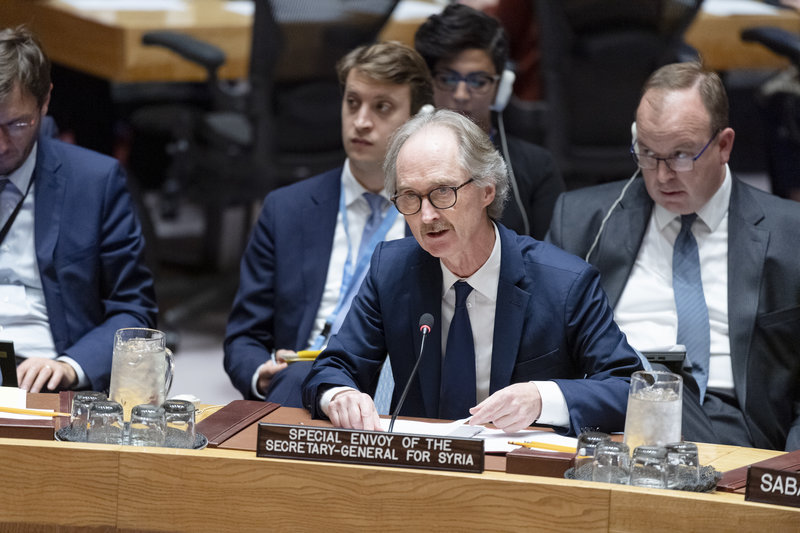The UN envoy to Syria, Geir Pedersen, emphasized that Syria has reached a critical turning point characterized by renewed diplomatic interest, particularly in reference to recent Arab initiatives towards the Assad regime.
Addressing the audience in Brussels on Thursday, Pedersen stated, “We have already reached a crucial inflection point. If the parties involved seize this opportunity and coordinate effectively, I firmly believe that progress is attainable.”
“While it may not be possible to achieve a comprehensive political solution in a single stride, I am confident that we can make gradual strides towards it.”
Unprecedented Financial Crisis Could Cut Aid to Millions in Syria
Observers note that Pedersen is considered the architect of the “step for step” approach, which Arab countries have prioritized in their new engagement with the Syrian regime, despite the latter’s lack of reciprocation.
This strategy involves Washington and its allies considering lifting or easing certain sanctions on the regime, contingent upon Moscow’s efforts to encourage Assad to take steps that facilitate progress in the stagnant political resolution process, without escalating military actions.
The UN envoy affirmed that he is closely collaborating with all stakeholders committed to advancing the process.
Furthermore, he is working towards reactivating meetings of the constitutional committee, which were suspended due to unrelated issues, impeding progress in resolving the Syrian conflict.
Pedersen believes that there exists an “exploitable opportunity” to build trust and initiate progress towards a political solution, emphasizing the necessity for alignment among all initiatives and the involvement of relevant actors in Syria.
Asharq Al-Awsat expressed that there is a consensus among the parties involved on two crucial points: first, recognizing the inability of any single party to independently resolve the crisis, and second, acknowledging the unacceptability of maintaining the status quo.
The outcome of the recent Arab initiatives towards the Syrian regime remains uncertain, leaving questions about their potential impact on the path toward a Syrian solution.
Similarly, it is unclear how the United States and Western countries will position themselves, considering their emphasis on a solution aligned with UN Resolution 2254.
The trajectory of the Turkish engagement with the Syrian regime, initiated earlier this year under Russian and Iranian auspices, also remains uncertain, and its ultimate destination remains to be seen.
This article was translated and edited by The Syrian Observer. The Syrian Observer has not verified the content of this story. Responsibility for the information and views set out in this article lies entirely with the author.


